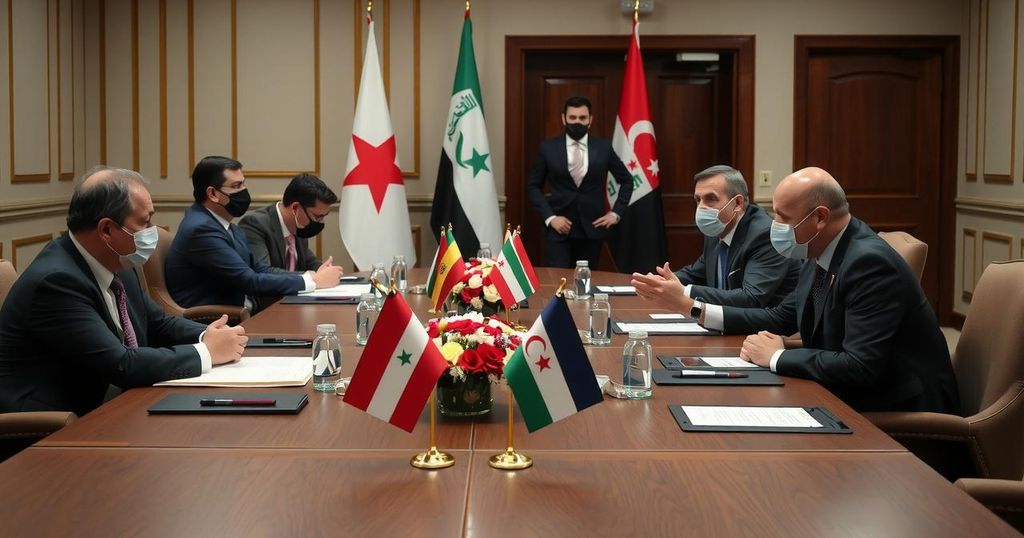The US, Turkey, and Arab nations have come together in Jordan to support a peaceful transition in Syria. Emphasizing the need for an inclusive government and cooperation among regional powers, the discussions underscored the desire to prevent further chaos. However, the absence of Syrian officials and key allies like Iran and Russia complicates the situation as they navigate future governance and security challenges in the region.
Officials from the United States, Turkey, and several Arab nations convened in Jordan to advocate for a peaceful transition process in Syria. During a press briefing in Aqaba, Jordanian Foreign Minister Ayman Safadi emphasized the regional commitment to prevent Syria from descending into chaos. US Secretary of State Antony Blinken confirmed direct communication with the rebel group Hayat Tahrir al-Sham (HTS), which played a significant role in the removal of President Bashar al-Assad’s regime.
The joint declaration called for an inclusive Syrian government that recognizes minority rights and opposes terrorism. The discussions highlighted the paramount need for governance that adequately represents all Syrians following recent tumultuous events. Iraqi Foreign Minister Fuad Hussein expressed regional apprehension about Syria’s trajectory, aiming to avoid another Libya-style situation characterized by upheaval post-regime change.
Turkish Foreign Minister Hakan Fidan underscored the necessity of preserving and reforming existing Syrian institutions while emphasizing the importance of preventing terrorism from exploiting the transitional period. Reports of HTS advocating for an inclusive government prompted skepticism due to its violent past. Secretary Blinken reiterated the United States’ direct engagement with HTS, particularly concerning the search for missing American journalist Austin Tice, despite HTS’s ongoing classification as a terrorist organization.
Notably absent from the discussions were representatives from the Syrian government and key supporters of President Assad, namely Iran and Russia. The lasting influences of various external entities in Syria remain a daunting challenge to the nation’s future. For meaningful progress, the emerging political forces in Syria must foster both internal and external cohesion, thus ensuring the realization of the Syrian people’s aspirations for freedom.
The Syrian conflict, which began in 2011, has drawn in various international and regional stakeholders, complicating the situation significantly. The United States, Turkey, and several Arab nations are currently seeking a diplomatic resolution to ensure a stable and unified Syria, following years of civil war and foreign intervention. The role of the US in engaging with rebel groups, like HTS, reflects an intricate balance of supporting Syrian aspirations for governance while navigating the complexities of terrorism designations and international relations. This conversation is set against concerns from neighboring countries about preventing the fragmentation of Syria along sectarian lines and avoiding the chaos witnessed in Libya after the overthrow of Colonel Gaddafi.
In summary, the meeting in Jordan marked a concerted effort by the United States, Turkey, and various Arab nations to advocate for a peaceful transition in Syria. The emphasis on forming an inclusive government and the recognition of minority rights were central themes of the discussions. However, the absence of Syrian representation and critical allies like Iran and Russia poses significant challenges. The international community’s approach moving forward will be crucial in determining the prospects for stability and unity in Syria, and ultimately, for the welfare of its people.
Original Source: www.bbc.com







